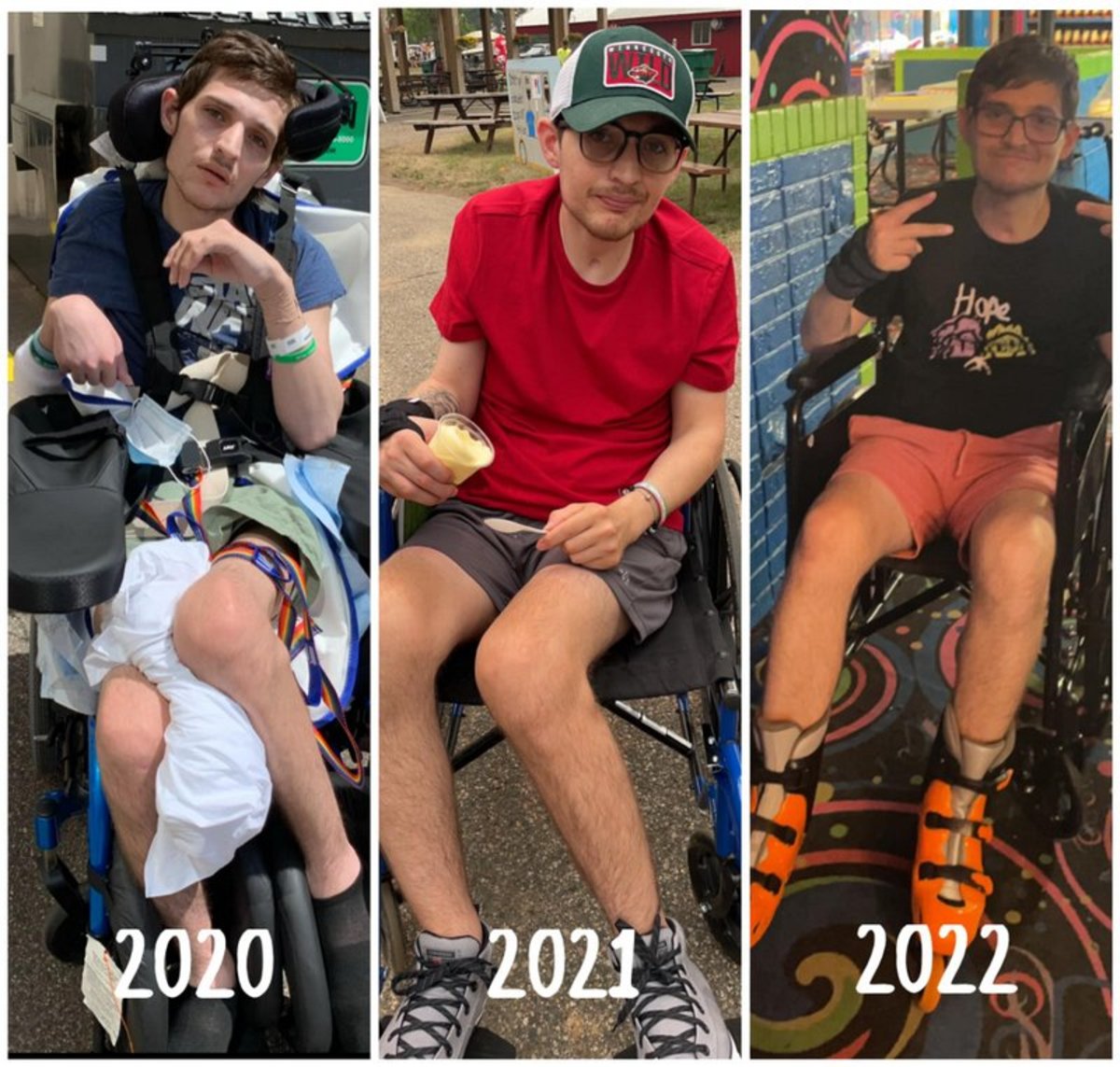It wouldn't have been possible a year ago. Maybe not even six months ago. But on Aug. 9, 2022, jockey Patrick Canchari returned to the saddle for the first time in 2 1/2 years. It's an incredible accomplishment; Canchari was struck by another car while driving to Turf Paradise for the races on March 17, 2020, and suffered a severe traumatic brain injury which has changed his life forever.
“It was pretty overwhelming to see him back on the horse again,” said his older sister, Ashley Canchari. “He is still lacking coordination and ability when he's on the ground walking, but when he got up on the horse, he seemed to remember things like it was yesterday.”
Ashley, now Patrick's legal guardian, has been caring for her brother full time since he left the hospital. Older by 14 months, she coordinates all of Patrick's therapy appointments, daily care and routines, and maintains an active Facebook page and email account to help keep Patrick connected to the outside world.
“He would try to do the same for me if the roles were reversed,” Ashley said.
The four Canchari children grew up in the shadow of Canterbury Park in Shakopee, Minn., thanks to their late father Luis's love of racing. Both Patrick and his two-year younger brother, Alex, became professional jockeys like their father.
Patrick rode 146 winners from 2011 through the first few months of 2020, and was in New Mexico for the winter circuit when the accident occurred.
On the scene, Patrick began seizing badly and was immediately rushed to the HonorHealth Deer Valley Medical Center in Phoenix. He had a GCS (Glasgow Coma Scale) score of just three, the lowest possible score. Patients with a GCS score of 7 or less are considered comatose, and patients with a score of 8 or less are considered to have suffered a severe head injury.
Doctors diagnosed Patrick with a fractured C-4 vertebrae and a diffuse axonal brain injury, defined by the shearing of the brain's long connecting nerve fibers that happens when the brain shifts and rotates inside the skull. It causes injury to many different parts of the brain, and though Patrick was in surgery just 20 minutes after the accident occurred, doctors believed there was a high chance he would remain in a vegetative state for the rest of his life.
Ashley and the rest of her family immediately flew down to Phoenix from Minnesota, but they were unable to see Patrick in the hospital; it had just been closed due to the COVID-19 pandemic.
“We had to communicate and do everything with the nurses and doctors via Facetime,” Ashley explained. “It was very difficult for us as a family, not to be able to be there with him and help with his recovery while he was in the hospital.”
Despite Patrick's diagnosis and prognosis, Ashley refused to believe that her brother couldn't recover.
“I was always at a point where I felt like everybody needed to be positive and optimistic, despite what the doctors were saying,” she said. “I always hold out hope that he'll make a full recovery some day… Now, doctors are calling his current progress miraculous.”
Patrick has had to relearn everything, from swallowing and eating to talking and walking. It took months before he could speak at all, and a few more months before he could be readily understood. Today, Patrick still needs some assistance while walking, but his cognitive progression has been quite significant.
“It's amazing that he continues to progress, to heal, 2 1/2 years after the accident,” said Ashley. “He remembers a lot of things that happened years and years ago, in our childhood, and he remembers horses he rode years ago, and where all the racetracks are. The racing stuff really stuck with him more than the personal stuff, but it's all a work in progress.”

Ashley, who finished her doctorate in education administration just two months before Patrick's accident, has coordinated a schedule of both traditional and non-traditional therapies to aid in Patrick's recovery. Recently, one of the more successful therapies has been Masgutova Neurosensorimotor Reflex Integration (MNRI), which targets underlying neurosensorimotor pathways to improve or even restore function.
“We really try to look at all areas of his overall health and well-being, and I consult with multiple doctors and specialists and functional medicine people to figure out what will work best for him,” Ashley said. “Advocacy is really important when it comes to his recovery, and it's definitely more than a full-time job. A lot of his therapy is also not covered by insurance, so I'm constantly doing fundraisers, but people have continued to support him and want to be invested in his recovery.
“We're hoping he can continue to heal and make progress, and that more and more comes back to him.”
Several racetracks at Canterbury had asked about getting Patrick into an equine therapy program, but every program Ashely could find has been full. Instead, former jockey Scott Stevens coordinated a visit with jockey Kelsi Harr and trainer Robert Kline, organizing the opportunity for Patrick to ride the lead pony around the backstretch.
There is one video of that day that's especially touching. Patrick spends several long moments just petting the horse's neck while a quiet peace shines through his eyes.
“Milestones like this make every hard day and fight for his recovery, worth it,” Ashley wrote on Facebook. “A very special thanks to Kelsi Harr, Robert Cline, Lacey, Scott Stevens, Jerry Livingston, Jake Barton, and Jeff Mayday for helping coordinate and turn this into a reality! This is such a special day for him. We are beyond thankful.”
Emails to Patrick can be sent to pcan09 at icloud. com, and his Amazon wish list is available here: https://amzn.to/3nnZTyj
The post ‘Miraculous’ Recovery: Jockey Patrick Canchari Continues To Improve Years After Traumatic Brain Injury appeared first on Horse Racing News | Paulick Report.
